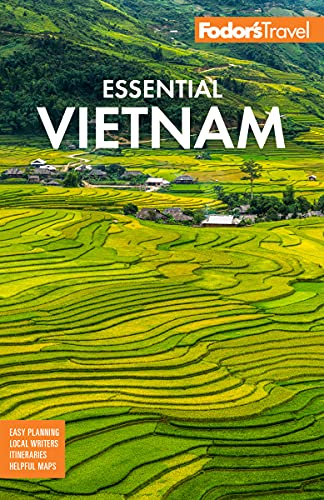Money
U.S. dollars are the preferred currency of exchange, but other major currencies are easy to exchange at banks, exchange counters, and hotels.
Small businesses in more rural places often can't change 500,000d bills. This can be problematic because many ATMs only give out bills in this denomination. Make sure you have plenty of small change on hand to avoid potentially awkward situations.
ATMs and Banks
Banks and ATMs are easily found in all major cities and most towns throughout Vietnam. If you are planning on visiting smaller towns take enough Vietnamese currency to cover your expenses. Despite the easy accessibility of ATMs, the withdrawal limit is low, with most offering a maximum of 4,000,000d per transaction in big cities and 2,000,000d per transaction in smaller places, though costs in Vietnam are also low. For limits of 5,000,000d look for ATMs of the major banks, like Donga and HSBC. Transaction charges are usually between about 20,000d and 55,000d and it's possible to make multiple transactions at a time, although most Western card companies frown upon this behavior and it’s not unusual for the ATM to retain your card after the third attempt. Almost all ATMs have an English-language option and most accept Visa, Maestro, and Plus cards. MasterCard and Cirrus are less common. For larger sums you’ll need to go to the counter inside the bank and show your passport and card.
Average costs
Be aware that Vietnam has an official dual-pricing system, so foreigners are often expected to pay more than double what locals do for trains, buses, flights, and other goods and services. In 1999 an official decree banned dual pricing at temples and tourist sites, but despite this rule, higher entrance fees for foreigners remain the norm.
It’s standard practice throughout Vietnam for tourist businesses to pay commission to guides, hotel staff, drivers, and anyone who introduces you to their business. In most circumstances the business takes the rap for the fee, but may provide an inferior tour or service because of their outlay in commissions. The worst offenders are in the busiest tourist destinations; the Mekong Delta, Nha Trang, Hoi An, Hue, and Halong Bay. Before committing, always do your research and take advice from people who have used the company. Hoi An tailors have taken this one step further, and most will pay upward of 30% of your final spend in commission, which is added to your bill. Do not accept invitations to visit a "sister" shop and make it clear that the business was not recommended to you by anyone before you start bargaining over the price. Similarly, drivers of private cars and tour buses will park at restaurants or at shops where they have previously arranged commissions, meaning you will overpay. If it’s a tour bus, you are unlikely to have a choice, but with a private car you can ask to be taken elsewhere if you're unhappy with the driver's choice.
Credit Cards
Credit cards have yet to catch on as a form of payment in Vietnam, but Visa and MasterCard are accepted at most large international hotels, upscale restaurants, better shops, large tour operators, and airline agencies. Few establishments accept American Express or Diners International cards so it’s best to check beforehand. For all credit card purchases you will be charged a 2%–3% transaction fee, although some restaurants, hotels, and shops sometimes insist on a service charge of up to 5%. Note that travelers' checks are accepted in Vietnam in very few places and especially not in rural areas and small towns.
Currency and Exchange
The official currency is the dong. The largest denomination is 500,000 (approximately $23.50), followed by 200,000, 100,000, 50,000, 20,000, and 10,000, which all come as plastic-coated bills. Smaller (paper) bills come in 5,000, 2,000, 1,000, and to a lesser extent 500 denominations. Although banknotes come in various colors and sizes, some are difficult to differentiate. Two good examples of this are the blue 500,000d bill, which looks remarkably similar to the 20,000d, and the red 200,000d, which is easily confused with the 10,000d. Keep these larger bills separate to avoid expensive mistakes. The bank exchange rate remains fairly stable and the dong trades at approximately 23,000d to the U.S. dollar. Although some markets, local shops, hotels, and restaurants accept U.S. dollars, merchants set their own rate, which is usually lower than the bank. Sacom and Vietcom Bank have numerous branches all over the country and give the official government rate. International banks like HSBC and Citibank have a presence in Vietnam and provide extensive banking services, including currency exchange, cash transfers, and cash advances on credit cards. At currency exchange booths you can exchange money quickly without showing your passport, but rates for smaller bills are not competitive and they will not accept torn or marked notes.
In smaller towns where banks or exchange booths are not an option, you can exchange U.S. dollars to dong in gold shops but, because this practice is technically illegal, exchange rates are usually poor, and it’s not unusual to be short-changed, so this should only be considered as a last resort. If there's no alternative, be sure to agree on an acceptable rate and check the currency for torn bills when it is handed over. It's also illegal for many smaller establishments to accept payments in anything but dong, but such rules are widely ignored. U.S. dollars are accepted at almost every private business, but many state enterprises—including trains—only accept dong. It's recommended that you carry both dollars and dong with you at all times.




